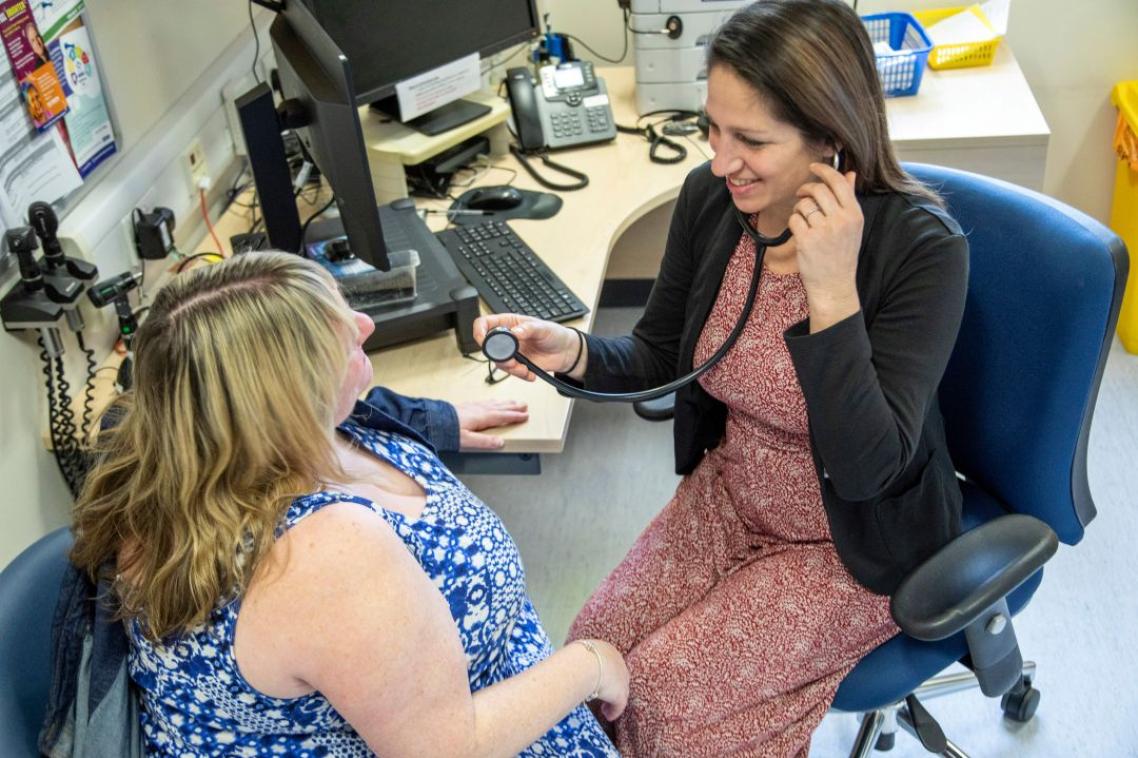Link proven between gut inflammation and inflammatory arthritis

Gut-linked inflammatory arthritis diseases are strongly familial, with millions of Australians potentially at risk.
(Photo credit: RFBSIP/Adobe )
Lead researchers Dr Anne-Sophie Bergot and MD-PhD candidate Ben Cai from UQ’s Frazer Institute found gut inflammation can cause immune-related diseases like Ankylosing Spondylitis and Psoriatic Arthritis.
“We found mice genetically predisposed to spine and joint arthritis developed the disease when colonised with a single gut bacteria,” Dr Bergot said.
“An inflammatory trigger induced leaky gut, which enabled the gut bacteria to move from inside the bowel into the gut wall where immune cells, called macrophages, transported bacterial DNA to joint tissues.
“In the healthy group, the macrophages were anti-inflammatory and bacterial DNA was not detectable in the joints, but in the genetically susceptible mice the macrophages were inflammatory and contained bacterial DNA.
“Extracting inflammatory macrophages and injecting them into healthy at-risk mice gave the mice severe arthritis.
The team then looked at gut and joint tissues from patients with Inflammatory Bowel Disease and Psoriatic Arthritis and found similar bacterial DNA deposits in the gut wall and joint tissues.
Study co-lead Professor Ranjeny Thomas AM said gut-linked inflammatory arthritis diseases are strongly familial, with millions of Australians potentially at risk.
“One to 2 per cent of the population have some form of spondyloarthritis and 70 per cent of these patients have evidence of gut inflammation and/or inflammatory bowel disease,” Professor Thomas said.
“Treatments that either stop bacteria travelling from the gut to joints or block the resulting inflammatory response could significantly reduce the risk or severity of the disease.
“The findings also provide a strong argument for preventive strategies such as dietary and lifestyle interventions for people at-risk.
“Exercise, Mediterranean diet and omega-3 are great ways to promote anti-inflammatory responses.”
“We are currently running a clinical trial of lifestyle interventions which is open for patients diagnosed with Rheumatoid Arthritis within the last year.”
The research has been published in JCI Insight.
Collaboration and acknowledgements
The research was carried out in partnership with Flinders University and Flinders Medical Centre, and the Mater Research Institute. UQ’s Frazer Institute is based at the Translational Research Institute.Topics
Related articles

Nature versus nurture question addressed in landmark study

A better way to assess cardiovascular health
Media contact
UQ Communications
communications@uq.edu.au
+61 429 056 139
